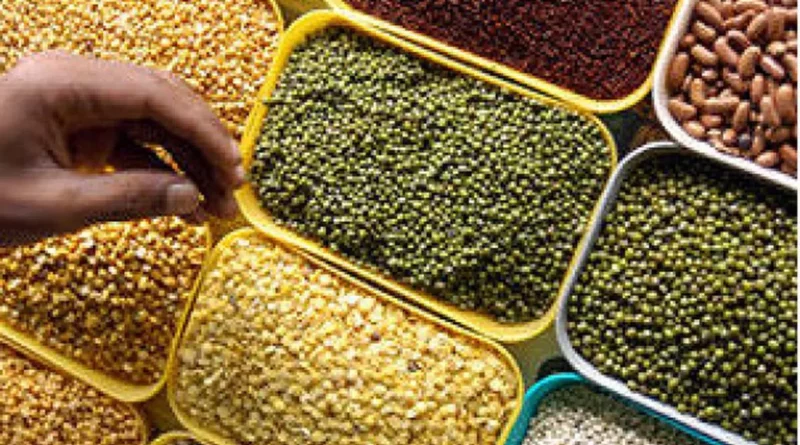Chhattisgarh: Parastarai farmers switch to pulses, oilseeds to tackle water crisis
Villagers of Parastarai village, located 15 km away from the Dhamtari district, have taken a significant step to tackle the water crisis they have been facing almost every year. In the past, cultivating paddy caused severe water shortages. To combat this, the village leader, along with the 250 farmers, made the decision to no longer plant paddy during the Rabi season. Instead, they opted to sow pulses and oilseeds, which require less water.
In the past two years, the village, with a total population of 1,465, faced a severe water shortage that affected the crops and it died due to harsh summers. The water level in the area declined, and wells and hand pumps too dried up. This affected the 250 farmers and the 200 hectares of land. To overcome this, the sarpanch and farmers decided to ditch paddy— a water intensive crop. Instead, they chose to sow wheat, chana, urad, and arhar, which consume less water, local farmers — Adil, Yamuna, Sonbar, and Meena Sah — said.
The villagers also ensured that anyone caught cultivating paddy would be penalized with an amount of Rs 27,000 per hectare. Additionally, the villagers prepared rainwater harvesting soak pits, and rooftop structures were built in the village. The village has 203 tube wells. Previously, the underground water level had reached about 200 feet, but now it is at about 70 feet.
Due to these measures, the villagers of Parastarai did not face water scarcity this summer season. Besides, the fertility of the land has increased due to crop rotation, providing direct benefits to the farmers.
District collector Namrata Gandhi told TOI, “I was amazed that the villagers, along with the community members, came up with such innovative ideas all by themselves. Once the villagers come together, they can achieve beyond what the govt can do. This initiative has become an inspiration, and now nearby villages are also working towards crop rotation and water conservation.”
The villagers, witnessing the positive impact on the water issue, decided to plant trees in the name of every girl child below the age of 18 in the village, she added.
This article has been republished from The Times of India.

